Another year has come and gone. You know what that means, don't you? Time for a bunch of strangers to tell you what was good! And why should you care what the LitReactor staff thinks are the best books of the year? Trick question! You shouldn't. But what they have to say might interest you nonetheless, because they are good-looking and knowledgeable and they read like the wind. So for those who care, we submit for your approval/derision some of LitReactor's favorite reads of 2020 (part 1).
*Not all of these books were published this year. We figured if someone read a book for the first time in 2020, they deserved the opportunity to crow about it.
**Also, I can't believe I've been cutting and pasting this same intro for nine years now.
Rob Hart — Class Director
![]() "Blacktop Wasteland" by S.A. Cosby
"Blacktop Wasteland" by S.A. Cosby
Full disclosure, me and Shawn share an agent, but I'd have picked this book anyway. It’s fitting that it opens with a drag race. This is the literary equivalent of a muscle car―sleek, a little dangerous, and when it kicks into gear, you hold on for dear life. Lucky for you, Cosby is an expert wheelman. That's the blurb I gave the book, and it remains true, but what's also true is the shameful deficit of Black men writing crime fiction within the Big Five ecosystem. This isn't just the kind of book we want, it's the kind of book we need. And Shawn is one the nicest guys in this business—full stop—so to see him hitting every year-end list imaginable (New York Times, Amazon, Bookpage, to name a few) is proof that good things still happen to good people in the year of our lord 2020.
Get Blacktop Wasteland at Bookshop or Amazon
"Winter Counts" by David Heska Wanbli Weiden
Crime fiction has been in desperate need of diversity for a very long time now (see: above), and Winter Counts is probably not the first Native American crime novel, but it's got to be the first to gain such a level of acclaim and prominence, and for very good reason. It follows Virgil, a local enforcer on a South Dakota reservation, investigating a drug ring that hits close to home. Crime fiction is full of outside-the-law enforcer characters (hell, I wrote a character like that). What sets Virgil apart is how necessary the role is, since the federal government has jurisdiction over felony crimes on reservations but often refuses to pursue prosecution. We like to think of enforcer characters as necessary; on reservations, they really are, taking crime-fiction fantasy into a tough—and depressing—reality. Which is where it should be.
Get Winter Counts at Bookshop or Amazon
![]() "And Now She's Gone" by Rachel Howzell Hall
"And Now She's Gone" by Rachel Howzell Hall
I want to tell you about Rachel. She annoys me. I say this as her friend and as someone who blurbed the book. She crafts sentences that make me jealous. Her character work, her plotting, they're all fantastic—and they're particularly on fire here, in a novel about a private detective that feels much more rooted in reality than any PI novel I've read in a long time. But more than anything, she has this ability to craft sharp, smart sentences that feel modern, but also harken back to the tone that made me fall in love with noir and hardboiled fiction. Every time I read her, I feel like I need to step up my ground game a bit. And again, it's another great example of how the crime fiction genre flourishes and gains new dimension when it's more open to writers of color.
Get And Now She's Gone at Bookshop or Amazon
"Devoltuion" by Max Brooks
Full disclosure, me and Max share an editor, but I'd have picked this book anyway. A novel told through interviews and a witness account, it starts with a secluded green habitat in the shadow of Mount Rainier that's cut off from society by a volcanic eruption, and that alone could have made for a really good novel. And it does, for about a hundred pages, until the real danger sets in: a family of bigfoots. Bigfeet? Whatever. That's when the book turns into an utter knockout. I read this in one sitting and got a bit depressed when it was over. I'd gladly have kept reading.
Get Devolution at Bookshop or Amazon
"The Starless Sea" by Erin Morgenstern
Okay, here's the thing about this book. It's a very slow burn. It took me maybe two months to read. In this context, I would call that a high compliment. I don't even know how to describe the plot in a succinct way, other than to say it's a celebration of storytelling. The way it luxuriates in atmosphere and detail, the way it challenges you to think about how a story can be constructed, I would often find myself reading a chapter or two, and then putting it down to mull things over. Of all the books I read this year, I think about this one a lot. I feel challenged by it. Maybe it's because I've been writing thrillers for the last few years, so my brain is always plot-plot-plot go-go-go, and this really reminded me that as a storyteller it's worth slowing down, looking around, and taking a deep breath. Because when you do, you can find shattering insight and beauty.
Get The Starless Sea at Bookshop or Amazon
Kathe Koja — Instructor
![]() "The Seventh Mansion" by Maryse Meijer
"The Seventh Mansion" by Maryse Meijer
Maryse Meijer has a voice like nobody else's, and this is a novel only Maryse could write. Love between two outsiders, death and rebirth, trees and tears and sex . . . Just read it.
Get The Seventh Mansion at Bookshop or Amazon
"The Old Guard: Opening Fire" and "The Old Guard: Force Multiplied" by Greg Rucka and Leandro Fernandez
The graphic novel format has always defeated me—words in balloons, ugh—but this tough, sad, passionate pair of books changed all that. Art and narrative perfectly mesh and the result is POW.
Get The Old Guard at Bookshop or Amazon
"Journey to Myself" and "Letters from Colette" selected and translated by Robert Phelps
2020 has been a hell of a year, literally. So Colette's wise, witty, formidable, tender voice makes an essential companion. If you've never read her, think champagne and lipstick at high noon, with bombs. Enjoy!
Lindsay Lerman — Instructor
![]() "Nothing Can Hurt You" by Nicola Maye Goldberg
"Nothing Can Hurt You" by Nicola Maye Goldberg
A series of sensitive character studies more nuanced (and compelling) than most contemporary "literary thrillers" set in motion by dead women. In steady, even tones—and with a perfectly dark sense of humor—Goldberg complicates and enriches tragedy. I found myself wanting to re-read each section before moving on to the next.
Get Nothing Can Hurt You at Bookshop or Amazon
"Negative Space" by B.R. Yeager
I have recommended this book countless times over the past year. Yeager's cosmic, existential horror is formally and stylistically impressive—a fact that is deserving of all the attention it has received, and more. What has not been given much attention yet, however, is the dangerous tenderness at the heart of the novel—its skillful exploration of the things people do for love, the ways that love drugs us and blinds us and alters our perception, approaching the supernatural.
Get Negative Space at Bookshop or Amazon
![]() "The Likely World" by Melanie Conroy-Goldman
"The Likely World" by Melanie Conroy-Goldman
2020 was a good year for strange, sparkling novels about addiction and love. This book takes risks, and for that I am thankful. The complex depictions of motherhood and childhood colliding with a disturbingly tempting memory-wiping drug make this novel special and unforgettable.
Get The Likely World at Bookshop or Amazon
"The Superrationals" by Stephanie La Cava
I finished reading this book months ago, but I keep finding reasons to open it again. There's the experimentation with form, the Greek chorus of gallery girls suffering from many deficits of reality, the cool gaze taking in the vapidity of the contemporary art world, the exploration of the impossible binds of femininity, the traps of the jeune-fille, the impossibility of knowing and relating to others. It's the kind of book I've always wanted and needed—I wish I'd had this book with me ten or twenty years ago.
Get The Superrationals at Bookshop or Amazon
"Silverfish" by Rone Shavers
I don't know if it's poor form to recommend a book written by a pressmate, but Silverfish is worth the risk. It's experimental and dystopic, asking some of the most difficult and pressing questions about contemporary existence—and whether and how we can understand the terms of our existence.
Get Silverfish at Bookshop or Amazon
Jay Wilburn — Columnist
![]() "The Perfectly Fine House" by Stephen Kozeniewski and Wlie E. Young
"The Perfectly Fine House" by Stephen Kozeniewski and Wlie E. Young
A truly unique haunted house story that turns the ghost trope on its ear. This story builds a world that never was, but is completely real. Masterful work.
Get The Perfectly Fine House at Bookshop or Amazon
"Lovely War" by Julie Berry
This novel combines mythology, historic fiction, a love story, and war into a story that is something above most other novels I've read in recent years.
Get Lovely War at Bookshop or Amazon
![]() "The Magpie Coffin" by Wile E. Young
"The Magpie Coffin" by Wile E. Young
This novel sold me on the splatterwestern subgenre. It has everything you want in extreme horror and gritty westerns. It's bombastic and beautiful.
Get The Magpie Coffin at Amazon
"Blacktop Wasteland" by S.A. Cosby
Everyone is talking about this novel as they should. Stephen King has mentioned it twice. It is a crime fiction heist story with the best surprises and the fullest characters in a world full of consequences. This is your chance to read his work before he's world famous.
Get Blacktop Wasteland at Bookshop or Amazon
"Slaves to Gravity" by Wesley Southard and Somer Canon
This beautiful collaboration is something more than horror or fantasy. The authors achieved something transcendent in this work. It deserves more recognition.
Get Slaves to Gravity at Bookshop or Amazon
Peter Derk — Columnist
![]() "Solutions and Other Problems" by Allie Brosh
"Solutions and Other Problems" by Allie Brosh
I want to spoil the very minimum amount required to entice you: Hilarious true story about a 3 year-old sneaking into a middle-aged man's house, repeatedly, using a doggie door, and then telling her parents she's been "hanging out" with the guy.
Get Solutions and Other Problems at Bookshop or Amazon
"Themes and Variations" by David Sedaris
I mean, when you have an extended analogy about a staircase, some grease, and ultimately how implausible it is that a pepper mill would make its way up your ass on accident, I'm in.
Get Themes and Variations at Amazon
![]() "SUPERtheticals: 50 New HYPERthetical Questions for More Strange Conversations" by Chuck Klosterman
"SUPERtheticals: 50 New HYPERthetical Questions for More Strange Conversations" by Chuck Klosterman
I guess it's not a book, just a collection of weird hypothetical questions. Can we just call it "Interactive fiction" and then get past the fact that it's a set of cards instead of being between two covers? Because it's great. If you're dreading holiday conversation, get this bad boy and you'll breeze through.
Get SUPERtheticals... at Bookshop or Amazon
"Providence" by Max Barry
Every so often a sci-fi book captures my interest. Usually because it's not just about laser swords and crap. This is one of those great sci-fi books that you'll like, even if you're not all that into sci-fi. Bonus, it's kind of under the radar, so it makes a good gift.
Get Providence at Bookshop or Amazon
"Consider This" by Chuck Palahniuk
We were spoiled for good stuff from Chuck this year, between Fight Club 3, The Invention of Sound, and this. I've picked my favorite of the three here. Consider This is the only book on writing you need. It takes me back to Fugitives and Refugees, Chuck's travel book about Portland, Oregon, that I enjoyed...maybe more than the city itself.
Get Consider This at Bookshop or Amazon

About the author
Joshua Chaplinsky is the Managing Editor of LitReactor. He is the author of The Paradox Twins (CLASH Books), the story collection Whispers in the Ear of A Dreaming Ape, and the parody Kanye West—Reanimator. His short fiction has been published by Vice, Vol. 1 Brooklyn, Thuglit, Severed Press, Perpetual Motion Machine Publishing, Broken River Books, and more. Follow him on Twitter and Instagram at @jaceycockrobin. More info at joshuachaplinsky.com and unravelingtheparadox.com.
 "Blacktop Wasteland" by S.A. Cosby
"Blacktop Wasteland" by S.A. Cosby
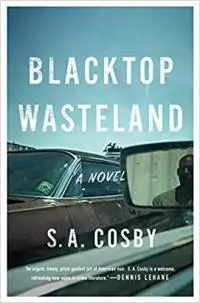 "And Now She's Gone" by Rachel Howzell Hall
"And Now She's Gone" by Rachel Howzell Hall
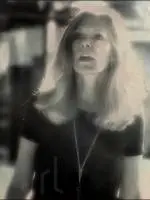 "The Seventh Mansion" by Maryse Meijer
"The Seventh Mansion" by Maryse Meijer
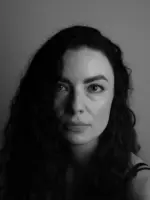 "Nothing Can Hurt You" by Nicola Maye Goldberg
"Nothing Can Hurt You" by Nicola Maye Goldberg
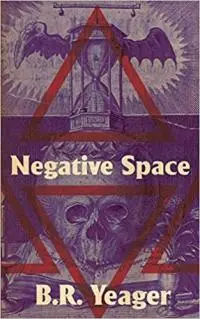 "The Likely World" by Melanie Conroy-Goldman
"The Likely World" by Melanie Conroy-Goldman
 "The Perfectly Fine House" by Stephen Kozeniewski and Wlie E. Young
"The Perfectly Fine House" by Stephen Kozeniewski and Wlie E. Young
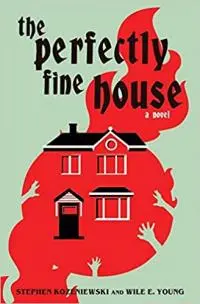 "The Magpie Coffin" by Wile E. Young
"The Magpie Coffin" by Wile E. Young
 "Solutions and Other Problems" by Allie Brosh
"Solutions and Other Problems" by Allie Brosh
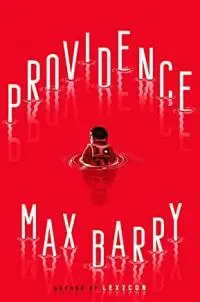 "SUPERtheticals: 50 New HYPERthetical Questions for More Strange Conversations" by Chuck Klosterman
"SUPERtheticals: 50 New HYPERthetical Questions for More Strange Conversations" by Chuck Klosterman








